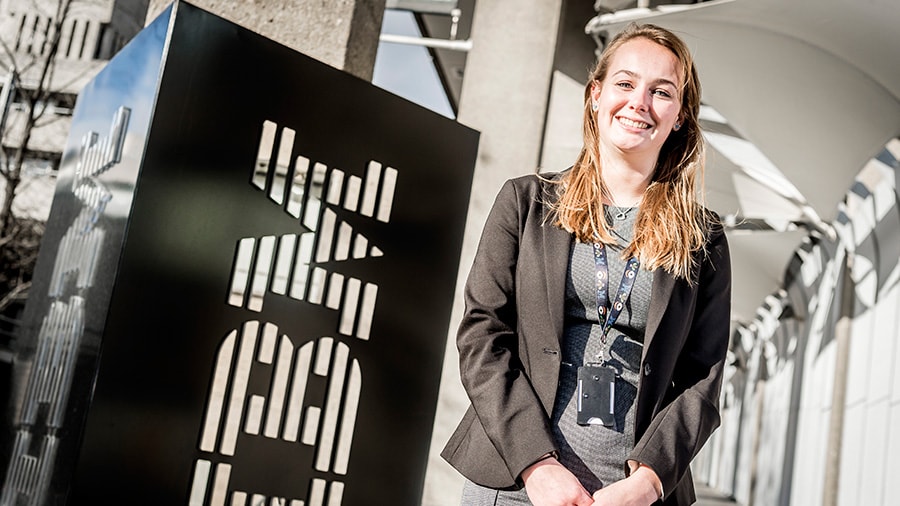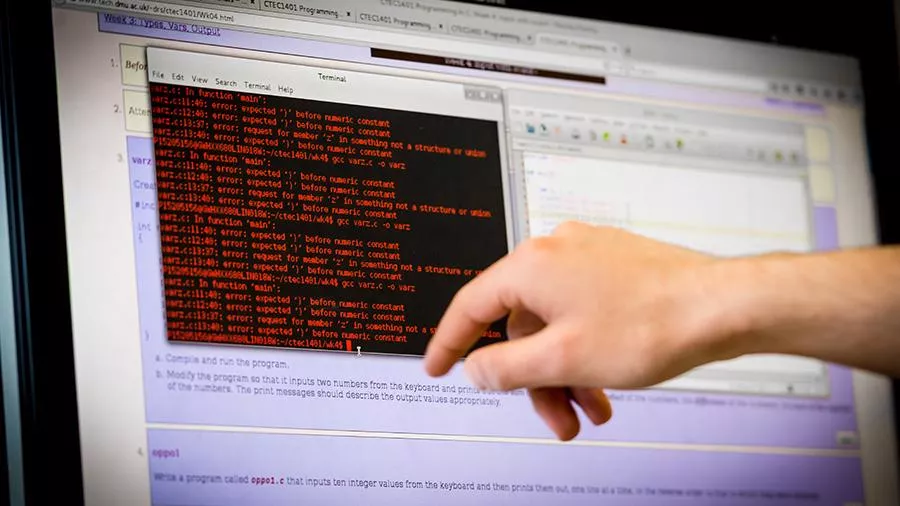Block 1: Foundation of Computing and Cyber Security
Block 2: Secure Coding
Block 3: Endpoint Security
Block 4: Business Infrastructure and Security
Additional: Expert Briefings in Cyber Security
Year two
Block 1: Secure Scripting and Business Applications
Block 2: Incident Response and Cyber Threat Intelligence
Block 3: Penetration Testing
Block 4: Industrial Cryptography
Year three
Block 1: Malware and Attacker Techniques
Block 2: Cyber Physical Systems Security
Block 3 / 4: Final Project
Optional Modules (choose one):
Block 3 / 4: Cyber Security and Social Responsibility
Block 3 / 4: Artificial Intelligence for Cyber Security
Block 3 / 4: Digital Forensics and Cyber Crime Investigation
Note: All modules are indicative and based on the current academic session. Course information is correct at the time of publication and is subject to review. Exact modules may, therefore, vary for your intake in order to keep content current. If there are changes to your course we will, where reasonable, take steps to inform you as appropriate.







